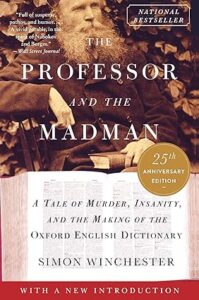 Instant Quiz
Instant Quiz
Can you correct the error in the sentence below? Scroll to the bottom of today’s post for the answer.
After five days at a first-class hotel, we were reluctant to leave our luxuriant surroundings.
____________________________________________________________
Sometimes we Americans are blamed for two annoying nonstandard English usages. One is ain’t, and the second is using literally to mean “figuratively”:
I ain’t got nothing left to say.
Joe literally laughed his head off.
Today’s post has two purposes. One is to correct the historical record. The second is to tell you about a resource you can use to research these questions yourself: the Oxford English Dictionary.
Let’s start with ain’t, a nonstandard word that could cause you to be passed over for a job or a promotion. Please don’t use it in a business setting!
But its history might surprise you. Ain’t was standard English from around 1600 to 1800. It used to be so respectable that it appeared in letters written by Jonathan Swift, Lord Byron, Henry Fielding, and George Eliot.
Literally was first used in the sense of figuratively in a British novel published in 1769: it’s hardly an example of twenty-first century decay.
The Oxford English Dictionary is a famous historical dictionary that traces the appearance and development of our English lexicon. When you look up a word (such as ain’t), you’ll get both the definition and the year it first appeared in print.
If the meaning changes over time, you’ll get the year that new definition first appeared. Quotations and sources are included to show how the word is used.
If you’re an avid reader, I guarantee that you’ll enjoy Simon Winchester’s book The Professor and the Madman. Or you might want to watch the 2019 film, starring Mel Gibson and Sean Penn. (Whichever one you choose, prepare to be shocked!)

____________________________________________________________
Luxuriant is the wrong word for today’s Quiz sentence. It means “thick” – luxuriant hair or plantings, for example.
The word you need today is luxurious (meaning “lavish” and “expensive”).
After five days at a first-class hotel, we were reluctant to leave our luxurious surroundings. CORRECT
What Your English Teacher Didn’t Tell You is available in paperback and Kindle formats from Amazon.com and other online booksellers.
“A useful resource for both students and professionals” – Jena L. Hawk, Ph.D., Mississippi Gulf Coast Community College
“Personable and readable…Jean knows her subject forwards and backwards.” – Adair Lara, author of Hold Me Close, Let Me Go










